Earthquake Theodicy
Armodoxy for Today
Earthquake Theodicy
On this date the earth shook in the town of Spitak, Armenia. The year was 1988, the Soviet Union was still intact. It’s president, Michael Gorbachev was visiting the United States, engaging in high level talks with then President Ronald Reagan promoting Glasnost and Perestroika. He cut his trip short and returned home and to Armenia to assess the damages. Anywhere from 25,000 – 50,000 people were presumed dead and thousand more injured.
At the time I was serving at the Armenian Church in Cupertino, California. We immediately went into disaster aid mode and became the collection center for humanitarian aid in the Bay Area, shipping much needed medical supplies and survival goods and services on a weekly basis.
The season was Advent. Christmas was approaching, but everyone was so overwhelmed by the enormity of the disaster that normal celebrations and gift giving was severely curtailed. Yet, on January 6, we would be celebrating Christmas – the joy of the Christ Child coming into the world – and greeting one another, “Christ is revealed among us!”
I was approached by the San Jose Mercury News to write a piece focusing on my sermon for Christmas: “God is Revealed, but where was He when we needed Him?” Here then, is what I offered and was printed January 5, 1989:
One of the most difficult questions asked of a priest is the question of evil. The problem is this: If God is good, and God is all powerful, why is there evil in the world? Since evil is a reality in this world, then it follows that either God is not all-powerful, or God does not will the good, or God does not exist. The search for an answer is more troubling when evil occurs in the form of a natural disaster, such as the Armenian earthquake. It seems that there is no one to blame but God.
This year, on January 6th the Armenian Church will celebrate Theophany (sometimes called Armenian Christmas). More than Christmas, we celebrate the Revelation of God to the world through His Son, Jesus Christ. Theophany is one of the major feast days of the Church. Far from a feast, this year will be different for Armenians. Still fresh in our minds is the tragedy of December 7, 1988 when we lost over 50,000 people to a natural disaster. Although this number is great by any standard, it is particularly significant for a small group of people such as the Armenians because it represents about 1% of the total world population of Armenians and approximately 2% of the population in Armenia. In comparison, if an earthquake in the United States killed 2% of the population, we would lose five million people! One third of Armenia was leveled. Imagine one third of the United States leveled – from the Rocky Mountains to the Western coast!
When facing such devastation, it is only natural to ask why? Even more, why did not God spare the good Armenian people? Why did He not intervene? Why the Armenian people? The same ones who were the first to accept Christianity, the ones who have so piously observed the faith for centuries, the ones who defended the faith to death, why them? When the history of a people, such as the Armenian’s, is plagued by devastation and tragedy, the questioning goes deeper: Why believe in a God who cannot save us from these dangers? I am confronted with questions such as these almost daily.
I also hear some answers. Some feel God has abandoned the Armenians for some divine purpose and plan. Even some doomsday forecasters claim the earthquake was part of the “signs of the times.” It is interesting to note, how quickly we are willing to thrust aside reason and logic when hit by calamity.
For me, I do not shy away from the scientific and logical approach. Why did the earthquake happen? Because the earth shifts. Why did people die? Because people were trapped under the rubble of buildings which were constructed poorly. Why didn’t God step in and save the Armenian people? I don’t know, but I venture to say that things just don’t work that way.
In times of crisis, our mental image of God transforms Him into a kind of superman. After all, He is omnipotent. But the order of nature is such that that there is an imperfection built into this world. Lightning causes fires. Drought causes crops to wither and brings famine. The shifting and settling of the earth causes earthquakes. And sometimes, unfortunately, people die.
So, the more important question becomes, why believe in a god that cannot save you from the perils and dangers of this world? Why celebrate the revelation and birth of a god who is powerless against nature? We begin by answering that God is not some kind of superman. God is not there to prevent an earthquake. Disasters will happen, but God is found in the reaction to the disaster. Where was God when the earthquake happened? Most probably He was weeping and hurt like all of us. But the real power of God is seen in the aftermath. We see God in the reaction to the earthquake–in the love and support He provides us.
When we see people throughout the world coming together to aid the Armenians, it is God working. God gives us the capacity to love. We give to others because of that ability to love. We must stop thinking of God as this great puppeteer who sends disaster to this world to see our reaction. No! Disaster, pain and suffering are part of an imperfect world. Where we do find God is in the peace and love that only He can give in answer to that disaster.
The feast of Theophany is the celebration of God becoming man so that man can know God. He took our form and went through all the motions of man. He suffered and died. He did not exempt Himself from this great suffering, for no one is exempt. However, He conquered death and promised the same to those who believe. What He left was His own peace, “not as the world gives.”
When the earthquake hit, we were all hurt. Where was God? We saw Him in the love and support from the four corners of the earth. We saw a world come together. We saw “enemies” helping “enemies.”
God is revealed: a God who understands us; a God who suffers with us; a God who helps and gives us strength during our darkest hour. This is God being revealed. This is the celebration of Theophany.

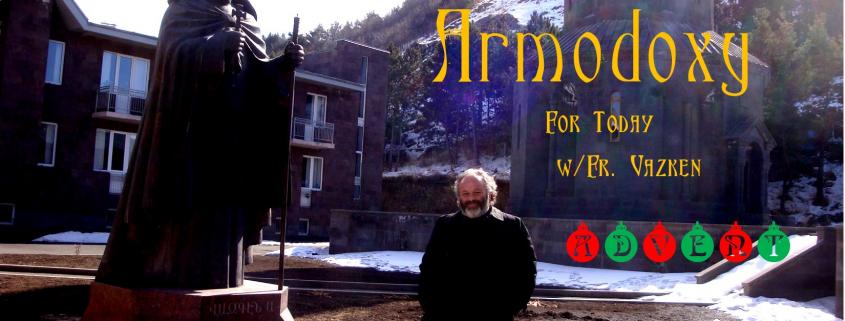 2009 Fr. Vazken Movsesian
2009 Fr. Vazken Movsesian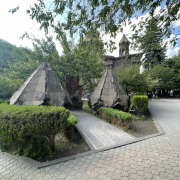 2023 Fr. Vazken Movsesian
2023 Fr. Vazken Movsesian 2019 Fr. Vazken Movsesian
2019 Fr. Vazken Movsesian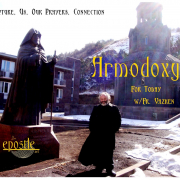 2009 Fr. Vazken Movsesian
2009 Fr. Vazken Movsesian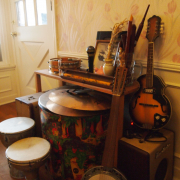
 2024 Fr. Vazken
2024 Fr. Vazken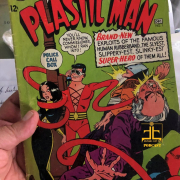


 2009 Fr. Vazken Movsesian
2009 Fr. Vazken Movsesian
Leave a Reply
Want to join the discussion?Feel free to contribute!